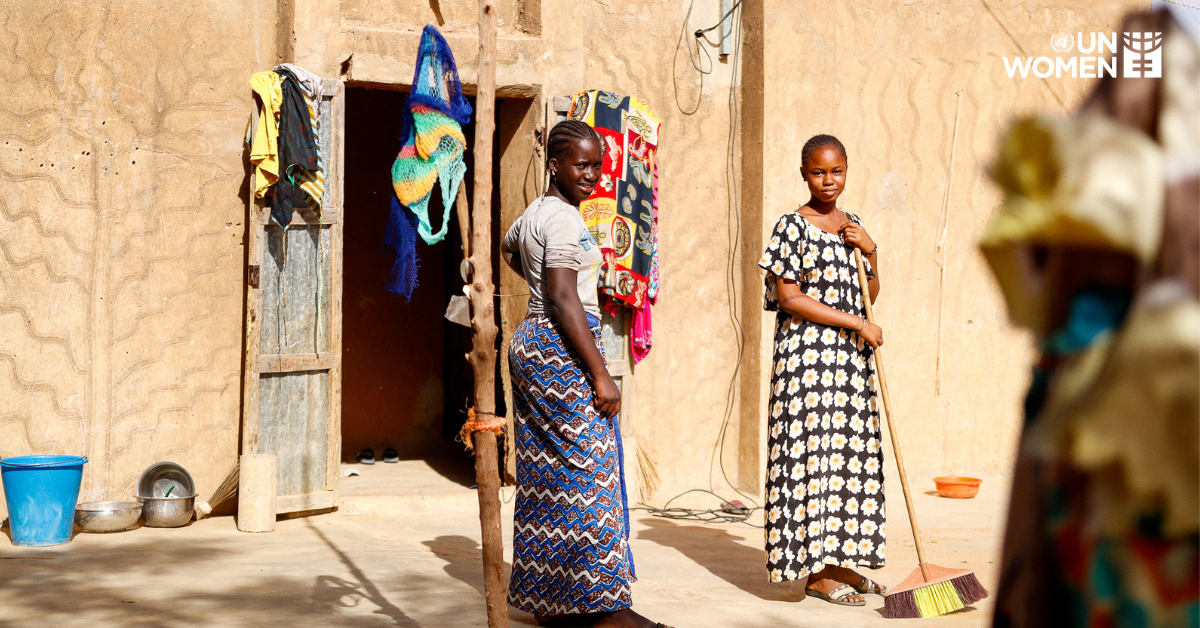KAMPALA, October 15, 2025 – Findings from a three-year study indicate that the new P.O.W.E.R. model intervention can alleviate the burden of unpaid care work [UCW] on women in Uganda. P.O.W.E.R. stands for Promoting Women’s Economic Empowerment, Organising Men to Challenge Inequities, Working with Communities, Engaging Local-Level Duty-Bearers, and Reaching Out to Decision-Makers through Advocacy.
The study, conducted by a consortium including Makerere University School of Women and Gender Studies, Care International in Uganda, and the Economic Policy Research Centre [EPRC], tested the P.O.W.E.R. model for the first time specifically to address UCW. Previously, the model had been utilised to tackle domestic violence.
Findings from the experiment carried out in four districts — Mpigi, Mbarara, Masindi, and Pallisa reveal that in parishes where the model was fully implemented, there was a reduction in time spent on unpaid care and domestic tasks for both women and men, while simultaneously increasing the average time allocated to paid work activities.
However, it was observed that men’s time in UCW did not increase even when women’s decreased. Dr. Madina Guloba, a Senior Research Fellow at EPRC and co-principal investigator, said: “There was no causation that when women’s time in unpaid care work reduced, men’s involvement in care work went up.”
She added that in parishes where the full implementation of the model was done, perceptions around the criticism of men engaging in unpaid care work shifted as they were no longer looked on at as having been witched or be isolated by peers.
“This is important as it requires mindset change at the individual and the community levels,” Guloba said during the national dissemination of the results in Kampala on September 4, 2024. “We were interested in seeing that the perception [towards unpaid care work] change. The mindset change should be reflected in the activities that people are doing.”
Parishes that experimented with parts of the model saw time women spent on unpaid care work reduce too although at a lesser magnitude compared to areas where the full model was implemented.
“The degree of reduction is observed more in households in the POWER recipient parishes than those in the control, PO and WER parishes,” says an extract from the draft report.
In contrast, in the control areas where nothing was done, unpaid care work time for women increased.
THE MODEL
The P.O.W.E.R model works with five key programming elements across multiple levels with individuals, households, communities, local-level duty bearers and service providers, and partners and decision-makers at the national, regional and international levels.
Each letter in the P.O.W.E.R stands for an intervention or activities performed at this level.
P represents the promotion of women and girls’ economic and political empowerment; O represents organising and engaging men and boys to challenge archaic social norms that define gender roles; W represents working with communities to facilitate dialogue and community activism; and R stands for reaching and influencing decision-makers through advocacy and partnerships at local, national level and international level.
For this experiment, a randomized controlled trial was conducted where one area did not receive an intervention; in another area, an intervention focused on community level; the other on individuals within the homes; the other received the full P.O.W.E.R model where all activities under the it were implemented.
According to Guloba, researchers wanted to “understand if interventions implemented were able to change the way people behaved towards unpaid care work.”
Pro. Florence Muhanguzi, a co-principal investigator from Makerere School of Women and Gender Studies, said that the results indicate a significant shift from what had been found in the baseline survey before the interventions were implemented. She noted that in the baseline survey, Gender Social Norms [GSN] associated with UCW were very strong in the target communities.
“They were closely linked to women’s and men’s identity; what it means to be an ideal man and ideal woman, according to society and community. Particularly, doing unpaid care work was seen as a woman’s work – communities expect all the work at family level to be what defines an ideal woman and that an ideal man should not be found cooking and caring for children. There was group identity in terms of influencing roles that men and women do.”
REACTIONS
The study findings were shared at the national dissemination in Kampala which was attended by participants from the academia, politics, government, civil society including men’s and women advocacy groups, experiment participants, development organizations, cultural and religious leaders among others.
Margaret Ayebare, the Woman MP for Mbarara district, said this evidence should be used to implement targeted investments in programs that could ease the burden of care work on women. She stressed that even small, practical interventions, such as providing flasks for households to store hot water or tea, could significantly reduce the workload for women.
“This simple provision could save women time and effort, allowing them to avoid returning to the kitchen repeatedly throughout the day,” she said.
Prof. Helen Nambalirwa Nkabala, the Principal of Makerere University’s College of Humanities and social Sciences [CHUSS], said the study represents a critical step towards shifting the conversation from the family and individual levels to broader national and global discussions.
Sheikh Muhammad Ali Waiswa, the Imam of MUBS, said the research findings had greatly enriched his perspective on the challenges facing religious leaders and the communities they serve. This newfound understanding, he said, would play a critical role in shaping their actions and decisions moving forward.
Dr. Sarah N. Ssewanyana, the EPRC Executive Director, stressed the importance of collaboration between government institutions and civil society organisations to gain a deeper understanding of effective strategies. She noted that this partnership such as in the consortium that carried out the study provided significant learning experience and would enrich subsequent studies. The study was supported by the International Development Research Centre [IDRC], Canada under the Growth and Economic Opportunities for Women [GrOW] East Africa initiative.
https://thecooperator.news/ico-and-ilo-join-forces-to-celebrate-2023-international-coffee-day/
Buy your copy of thecooperator magazine from one of our country-wide vending points or an e-copy on emag.thecooperator.news
